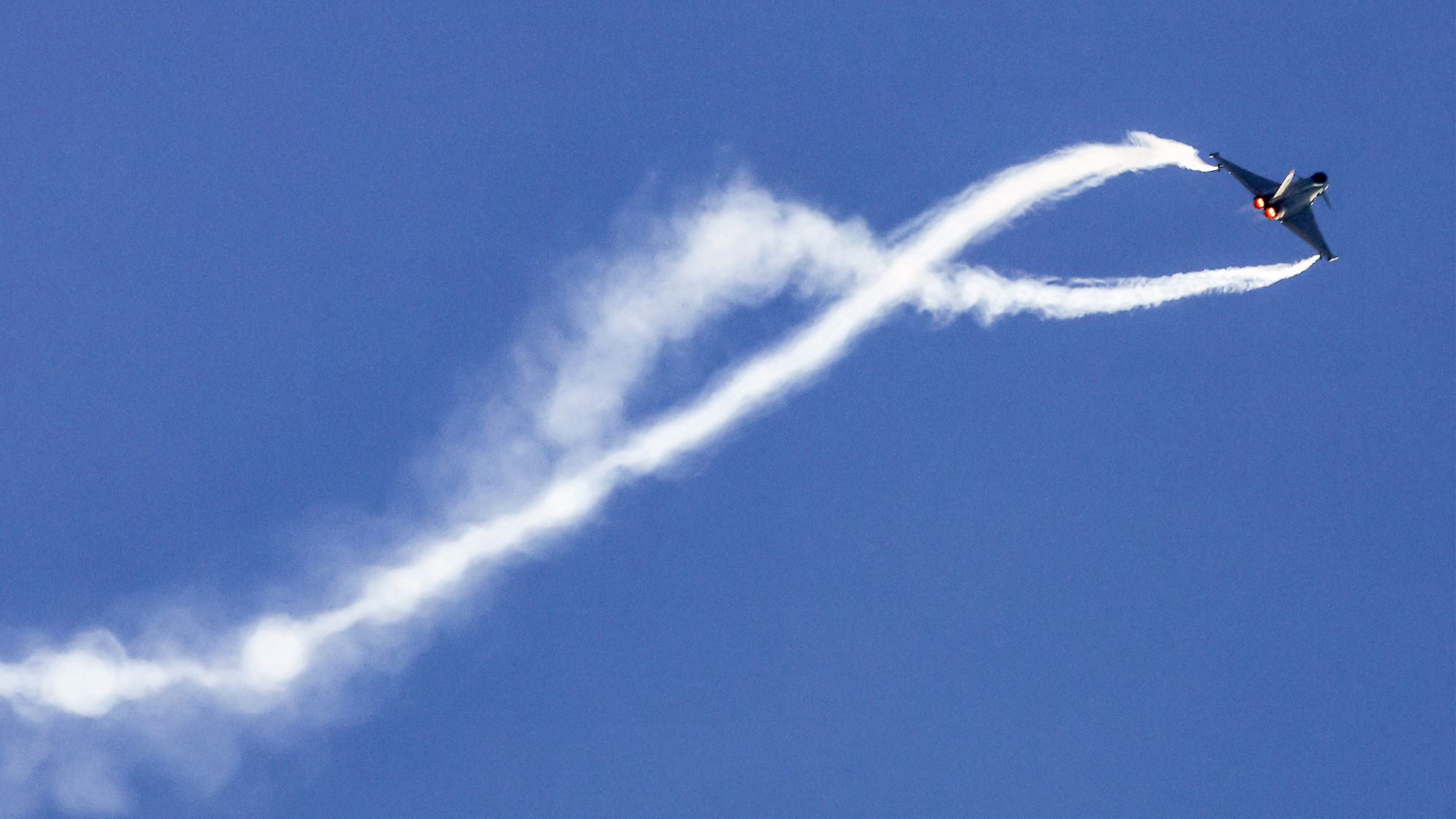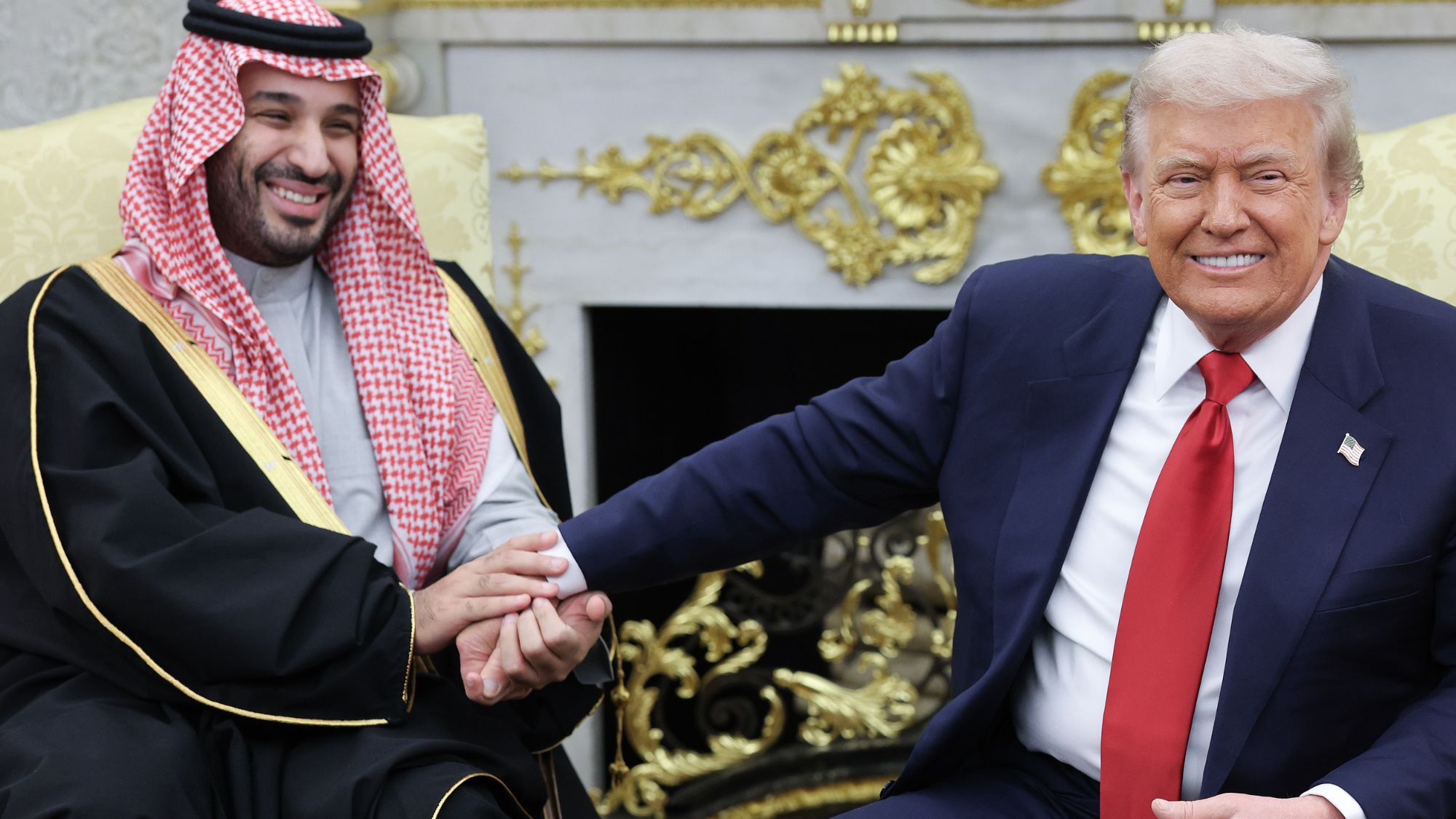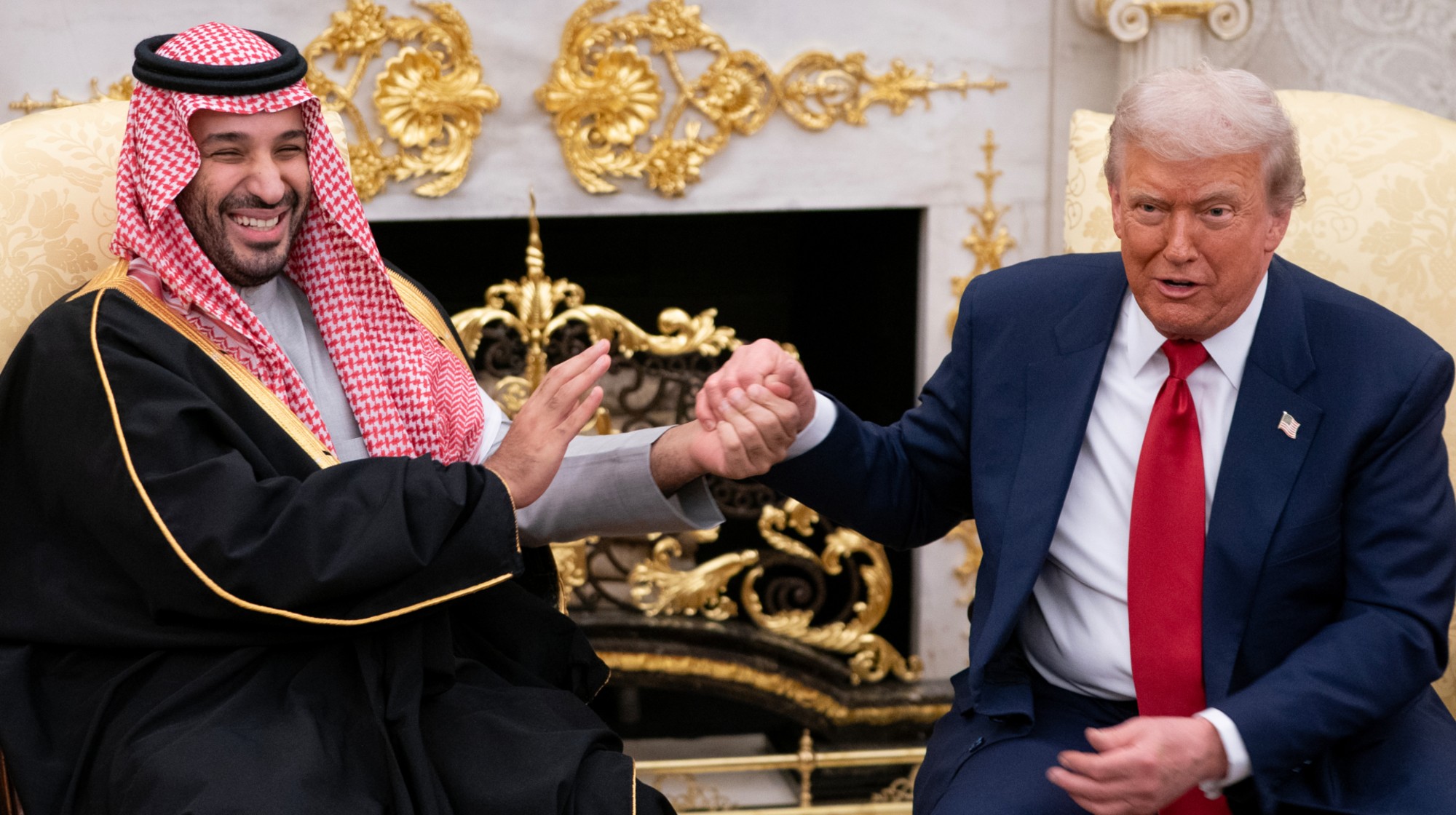Why is the UK pushing Germany on fighter jets for Saudi Arabia?
Berlin has opposed the sale of weapons to Riyadh on humanitarian grounds

A free daily email with the biggest news stories of the day – and the best features from TheWeek.com
You are now subscribed
Your newsletter sign-up was successful
Rishi Sunak is pushing Germany to approve the sale of Europe's most advanced fighter jets to Saudi Arabia, ahead of an expected autumn visit to Downing Street by the oil-rich country's Crown Prince Mohammed Bin Salman.
Germany banned the sale of all weapons to the Middle Eastern country after Saudi agents killed Jamal Khashoggi, a journalist and critic of Bin Salman, in June 2017. It softened its position slightly in July this year but remained stubbornly opposed to selling Typhoons to Riyadh.
Sunak is now urging Olaf Scholz, the German chancellor, to lift the ban to allow the sale of 48 Typhoon jets to Saudi Arabia, which would be worth at least £5 billion.
The Week
Escape your echo chamber. Get the facts behind the news, plus analysis from multiple perspectives.

Sign up for The Week's Free Newsletters
From our morning news briefing to a weekly Good News Newsletter, get the best of The Week delivered directly to your inbox.
From our morning news briefing to a weekly Good News Newsletter, get the best of The Week delivered directly to your inbox.
Eurofighter Typhoon jets are built and maintained by BAE Systems, employing several thousand people in Lancashire.
Germany holds a veto power over the plane's sale, given it was one of four countries – alongside Britain, Italy and Spain – that developed the jet under Nato's watch in the 1980s. Currently, a third of the components for the jets come from Germany.
What did the papers say?
Scholz is believed to be in favour of approving the fighter jets deal and "is sympathetic to Britain's economic arguments", said The Telegraph. However, the German Greens Party, with whom Scholz's Social Democrats are in a coalition, "oppose it because of Saudi Arabia's human rights record", the paper said.
Britain has also argued that Germany cannot block the export of Typhoons to Saudi Arabia since its rapprochement with Iran, which could end the rival nations' proxy war in Yemen. The original deal to sell 48 fighter jets to Riyadh was put on hold due to the war in Yemen, where Saudi-led Arab forces intervened in 2015.
A free daily email with the biggest news stories of the day – and the best features from TheWeek.com
Despite the delay, BAE Systems remains confident that the deal will go through. One BAE source told The Telegraph that there appeared to be "movement" on Germany's position in the past year.
The source told the paper that the motivation for the sale ought not to be purely financial, but also strategic.
"From a geopolitical point of view, it's better [Saudi Arabia] align with the West and Western kit than our adversaries," the source added. "That's of high strategic importance. It's not just about money."
Yet for those who oppose the sale, including most of the Green Party, the embargo has both strategic as well as moral dimensions: Russia's war in Ukraine shows that one's tentative partners can easily become adversaries.
What next?
"Much is riding" on the outcome of Sunak's entreaties to the Germany chancellor on delivering Eurofighter Typhoon jets to Saudi Arabia, said The Times.
The implications of Berlin's decision will "go beyond the order for 48 combat aircraft", the paper added, "potentially influencing the future of the British defence industry and the readiness of Germany's allies to work with it on several sensitive next-generation weapons projects".
As well as securing 5,000 jobs and more than a billion pounds of investment at BAE Systems, Britain is also keen to bring Saudi Arabia into the new Tempest programme, a joint initiative between the UK, Italy and Japan to develop an advanced new stealth fighter jet by 2035.
Germany's coalition government "remains at odds" over whether to bow to British pressure, Reuters reported, citing anonymous sources that spoke to Welt Am Sonntag. Weapon exports to conflict regions remain "a particularly sensitive issue for the Greens", Politico said.
According to The Times, however, Scholz and other senior politicians in his coalition are "acutely aware" that being willing to negotiate on such matters is "precisely what some of their allies expect as the price of Germany's credibility and reliability as a military ally".
Arion McNicoll is a freelance writer at The Week Digital and was previously the UK website’s editor. He has also held senior editorial roles at CNN, The Times and The Sunday Times. Along with his writing work, he co-hosts “Today in History with The Retrospectors”, Rethink Audio’s flagship daily podcast, and is a regular panellist (and occasional stand-in host) on “The Week Unwrapped”. He is also a judge for The Publisher Podcast Awards.
-
 6 exquisite homes with vast acreage
6 exquisite homes with vast acreageFeature Featuring an off-the-grid contemporary home in New Mexico and lakefront farmhouse in Massachusetts
-
 Film reviews: ‘Wuthering Heights,’ ‘Good Luck, Have Fun, Don’t Die,’ and ‘Sirat’
Film reviews: ‘Wuthering Heights,’ ‘Good Luck, Have Fun, Don’t Die,’ and ‘Sirat’Feature An inconvenient love torments a would-be couple, a gonzo time traveler seeks to save humanity from AI, and a father’s desperate search goes deeply sideways
-
 Political cartoons for February 16
Political cartoons for February 16Cartoons Monday’s political cartoons include President's Day, a valentine from the Epstein files, and more
-
 How corrupt is the UK?
How corrupt is the UK?The Explainer Decline in standards ‘risks becoming a defining feature of our political culture’ as Britain falls to lowest ever score on global index
-
 The high street: Britain’s next political battleground?
The high street: Britain’s next political battleground?In the Spotlight Mass closure of shops and influx of organised crime are fuelling voter anger, and offer an opening for Reform UK
-
 Who is paying for Europe’s €90bn Ukraine loan?
Who is paying for Europe’s €90bn Ukraine loan?Today’s Big Question Kyiv secures crucial funding but the EU ‘blinked’ at the chance to strike a bold blow against Russia
-
 Is a Reform-Tory pact becoming more likely?
Is a Reform-Tory pact becoming more likely?Today’s Big Question Nigel Farage’s party is ahead in the polls but still falls well short of a Commons majority, while Conservatives are still losing MPs to Reform
-
 The US-Saudi relationship: too big to fail?
The US-Saudi relationship: too big to fail?Talking Point With the Saudis investing $1 trillion into the US, and Trump granting them ‘major non-Nato ally’ status, for now the two countries need each other
-
 Why is Donald Trump suddenly interested in Sudan?
Why is Donald Trump suddenly interested in Sudan?Today's Big Question A push from Saudi Arabia’s crown prince helped
-
 ‘The money to fix this problem already exists’
‘The money to fix this problem already exists’Instant Opinion Opinion, comment and editorials of the day
-
 Trump defends Saudi prince, shrugs off Khashoggi murder
Trump defends Saudi prince, shrugs off Khashoggi murderSpeed Read The president rebuked an ABC News reporter for asking Mohammed bin Salman about the death of a Washington Post journalist at the Saudi Consulate in 2018